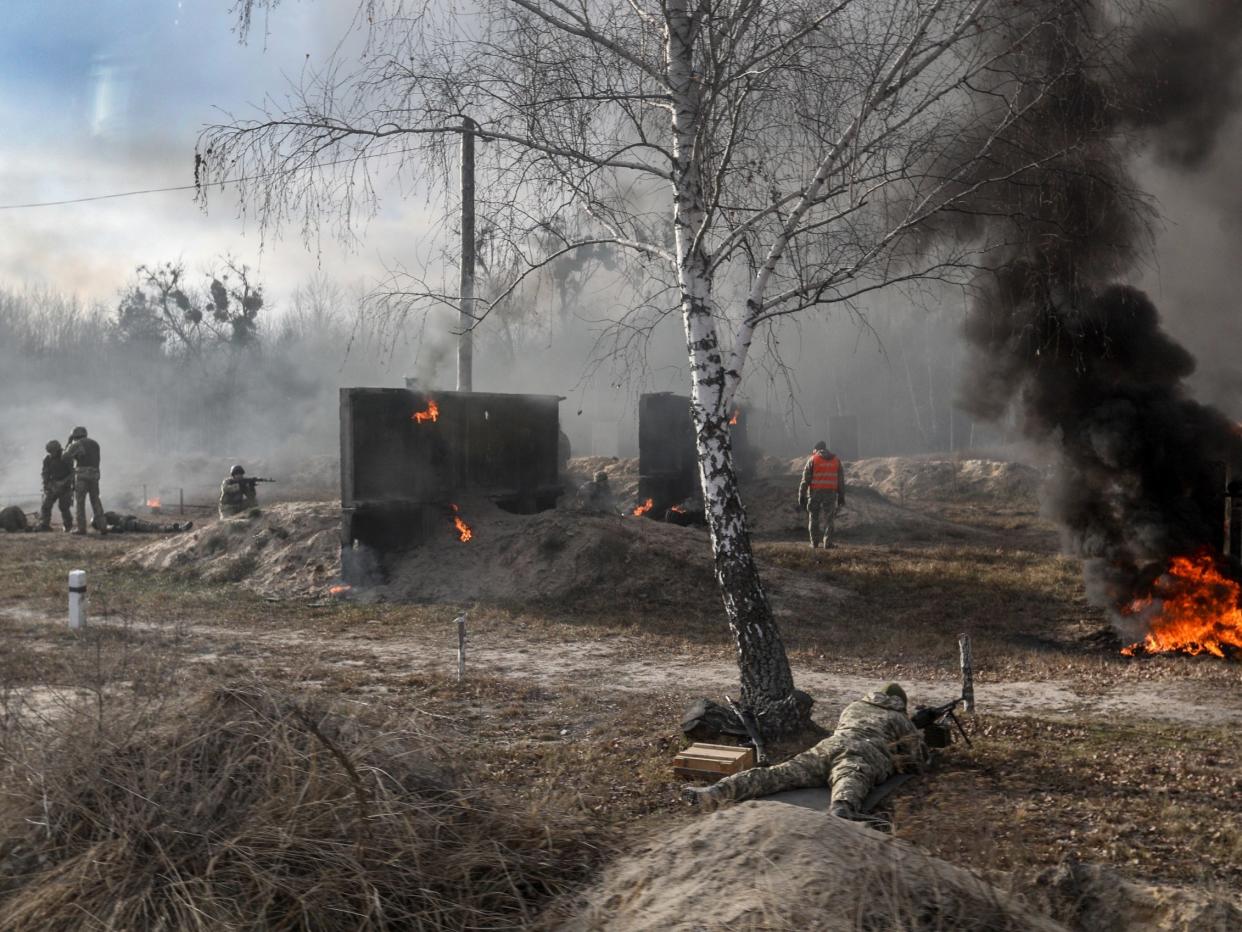British troop deployment to Ukraine likely to play into Kremlin’s hands

Gavin Williamson, UK defence secretary, raised eyebrows on Wednesday with a headline-friendly committent for more troops and the deployment of a Royal Navy ship to Ukraine.
The disposition of armed services, described as a direct response to “Russian aggression ... in defence of values of freedom and democracy”, coincided with a visit to London by Ukrainian defence minister Stepan Poltorak.
“As long as Ukraine faces Russian hostilities, it will find a steadfast partner in the United Kingdom,” Mr Williamson was reported to have told his Ukrainian counterpart, according to the Ministry of Defence.
But beyond the tough rhetoric, the exact extent of the British commitment remains vague, and is certainly unlikely to worry the Kremlin.
The Ministry of Defence (MoD) confirmed an unspecified number of British forces would be sent to train Ukrainian special forces and marines early next year. These add to the 100 personnel currently in the country.
And the HMS Echo, a hydrographic survey ship, will be deployed to the Black Sea region, complete with its crew of 72.
The MoD statement said the ship’s presence in the region was designed to “demonstrate the UK’s support to ensuring freedom of navigation”.
Ukraine has been embroiled in war in the east of the country since 2014. The vast body of evidence suggests they are fighting Russia and Russian proxies, though the Kremlin officially denies any involvement.
Fighting in these regions has died down from highs of 2014 and 2015, and is now concentrated around a handful of flashpoints near Donetsk airport, run by Russian-backed separatists, and the Ukrainian-controlled port of Mariupol. But this year, a new battleground has emerged around the Sea of Azov, the strategic gateway to the shoreline east of Crimea, which Ukraine still controls.
I guess these statements are meant to annoy and irritate Moscow, but they are meaningless
Vladimir Frolov, former Russian diplomat
Tensions are high in the region following the completion of a new bridge linking annexed Crimea with the mainland. Now any vessels looking to access Ukrainian ports in the Sea of Azov have to cross that barrier. Kiev is complaining that Russia has now established a de facto blockade of those ports, with Russian border guards harassing Ukrainian vessels.
Wednesday’s statement makes no mention of the deployment being sent anywhere near the Azov Sea flashpoint.
If that happens there would be some potential for escalation, says Vladimir Frolov, a former Russian diplomat. But what Mr Williamson had suggested so far did not “amount to much militarily” and “would not provoke a Russian invasion”.
“The ship to be deployed would be part of [the annually recurring] Operation Sea Breeze, and it would also be a research vessel, not a destroyer as the US Navy sometimes sends,” he said. “I guess these statements are meant to annoy and irritate Moscow, but they are meaningless.”
If anything, Williamson’s rhetoric is likely to help Moscow’s PR effort, which has long portrayed the Ukrainian war as an imperial conflict between Russia and the west.
Soon after news broke of the British deployment, propaganda outlets in the separatist-controlled east also stepped up to the plate.
“Military experts from the UK have arrived in Donbass to organise a chemical weapons attack,” one announced.

 Yahoo News
Yahoo News 
